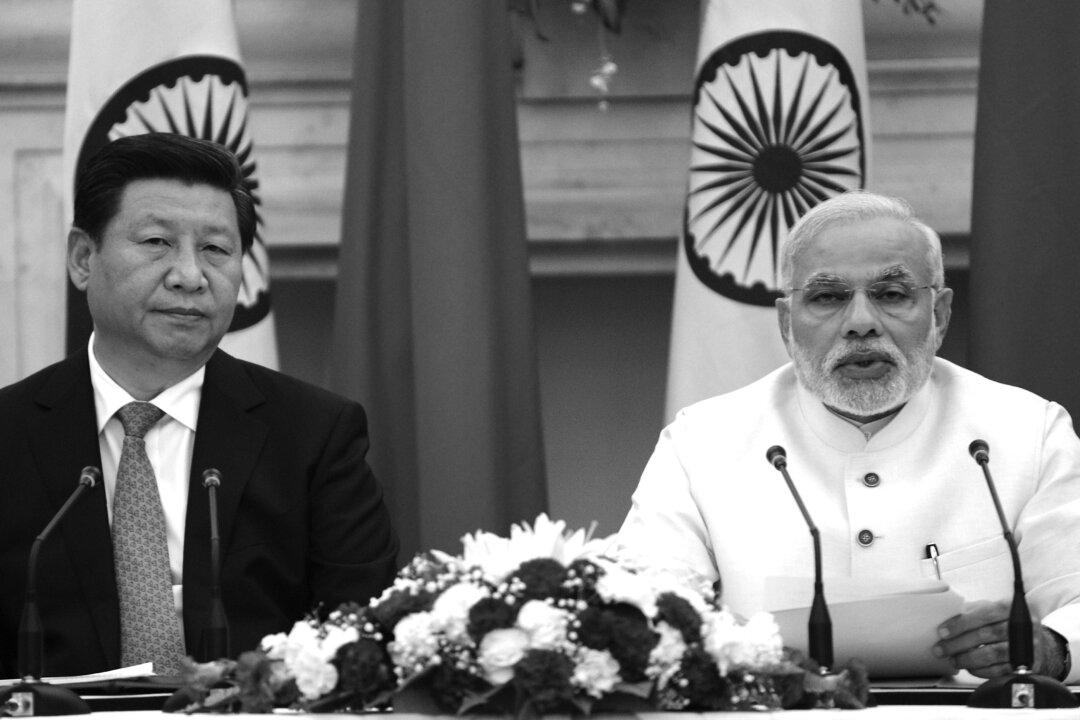NEW DELHI—On Thursday night, Chinese troops withdrew from Indian territory in Ladakh, a northern region on the border with China. This happened just after Indian Prime Minister Narendra Modi took up the issue of border conflicts with Chinese Leader Xi Jinping during his visit to India.
Xi arrived in India Wednesday, the first visit by a Chinese top leader in eight years. The leader signed a series of important agreements and promised to invest $20 billion in India over the next five years.
However, more than the economic engagement between the two countries, the presence of hundreds, some say up to 1,000, Chinese soldiers inside India’s territory, has grabbed the most attention.
According to Indian media reports, early last week, soldiers of China’s People’s Liberation Army entered the Chumur region in southern Ladakh near the de facto border. As the number of Chinese soldiers increased, India also sent some 1,500 soldiers to the region, leading to a tense face off between the two armies.
According to New Delhi Television (NDTV), Xi told Modi during their one-on-one meeting on Thursday that he has asked the Chinese troops to withdraw. However hours after their withdrawal, 35 Chinese soldiers again crossed into the Indian territory and stationed themselves on a hillock.
The Times of India newspaper reported the Indian army, which had started withdrawing, stopped its scaling-down operations and was keeping vigil over the area.
China’s Intentions
India and China have shared a disputed border for half a century after the two countries fought a border war in 1962. One analyst believes China keeps the disputed border issue alive to keep pressure on India.
“China perceives that unresolved border issues provide China the strategic leverage to keep India uncertain about its intentions, nervous about its capabilities, exposes India’s vulnerabilities and weaknesses and ensures New Delhi’s ‘good behavior’ on issues of vital concerns to China,” wrote Mohan Malik in an article in a special issue of Indian magazine “World Focus”. Malik is a professor at the Asia-Pacific Center for Security Studies in Honolulu.
That might not be the whole story, however. According to Chris Chappell, a Chinese political commentator and host of New Tang Dynasty Televisions’ “China Uncensored,” the border dispute could be due to factional in-fighting in China’s Communist Party.
“Xi is also trying to expand his influence over the military. The hawkish, warmongering extremist faction of the Party is going nuts, aggressively inflaming territorial disputes,” he wrote in an opinion piece in Epoch Times on Friday.
Seen through this lens, the conflicts on the border could be a scheme by the other faction to make Xi look bad while on such a high-level diplomatic visit.





